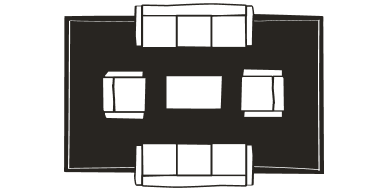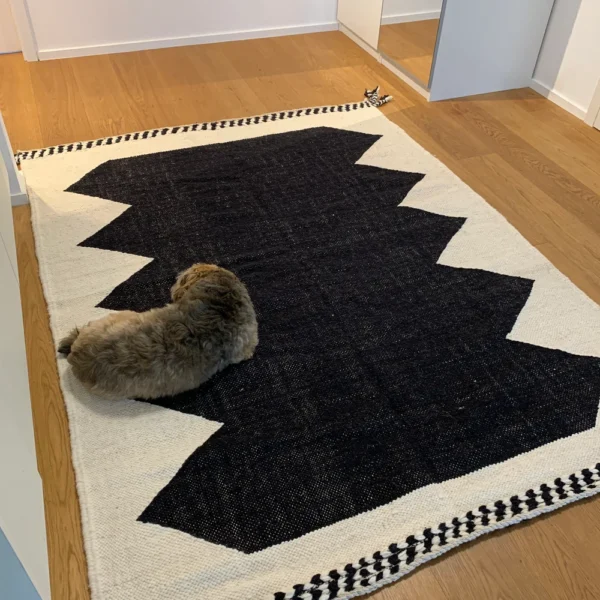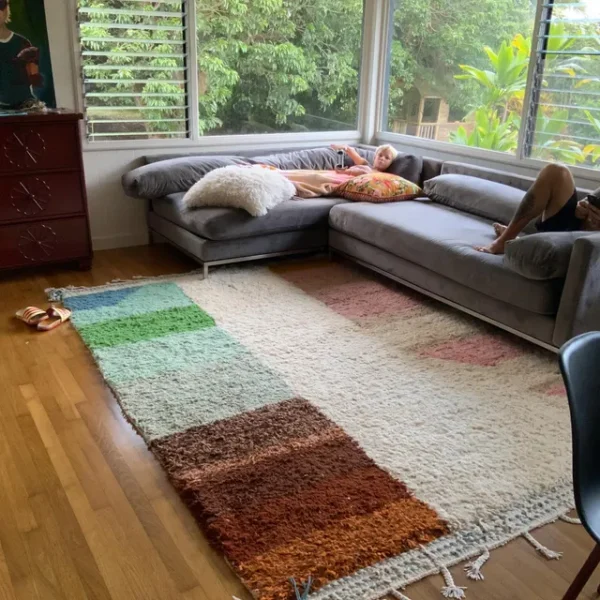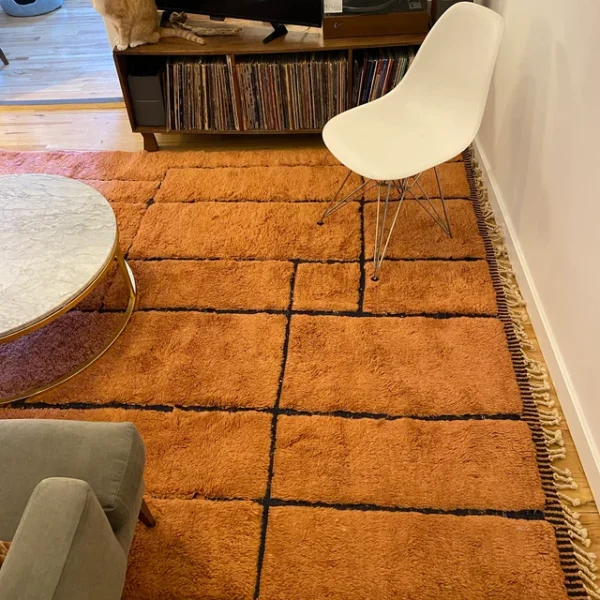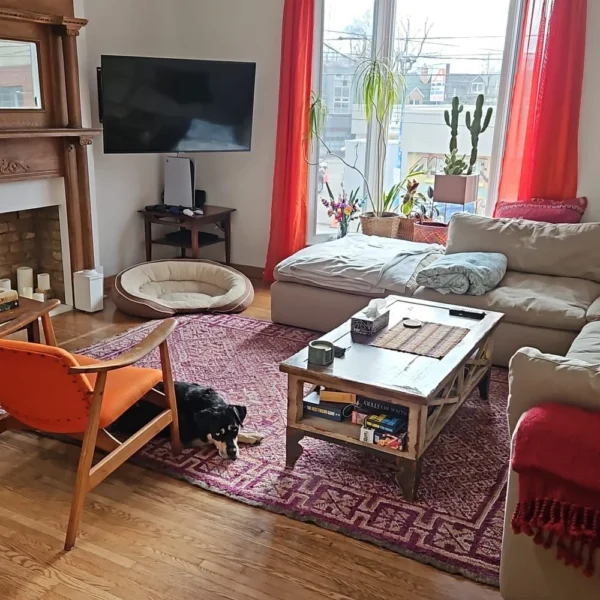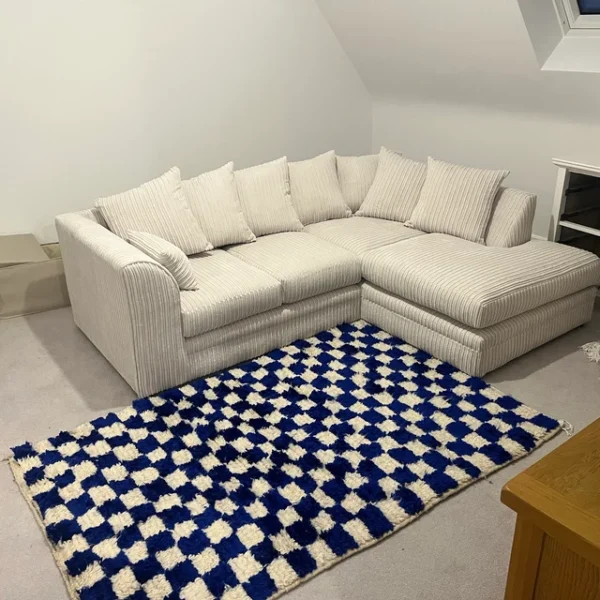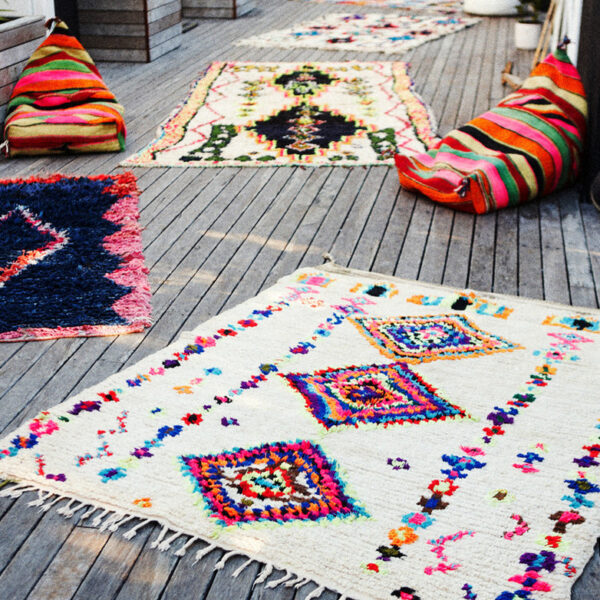The global rug market is vast, but not all of it adheres to the principles of fairness and ethical business. The Moroccan rug industry, with its deep-rooted traditions, has been making commendable strides in promoting fair trade and ensuring ethical practices. Let’s explore how this ancient craft meets modern ethics.
1. Empowering Local Artisans
At the heart of the Moroccan rug industry are the talented artisans who weave stories through their designs. Ensuring they receive fair wages, proper working conditions, and opportunities for growth is pivotal. Empowerment of local artisans is not just ethically sound but also preserves the authenticity and quality of the rugs.
2. Transparent Sourcing
Understanding the origin of the materials, be it wool from the Atlas Mountains or dyes from local plants, is essential. Transparent sourcing ensures that every material is ethically obtained, benefiting local communities and the environment.
3. Rejecting Child Labor
A significant concern in global industries is the unethical use of child labor. The Moroccan rug industry, especially those businesses adhering to fair trade principles, strictly opposes and rejects the use of child labor, ensuring that every rug is a product of skilled adult craftsmanship.
4. Supporting Women’s Cooperatives
Many rug-making cooperatives in Morocco are women-led. By purchasing rugs from these cooperatives, consumers support female empowerment and ensure that the traditions of rug-making pass down through generations while uplifting communities.
5. Environmentally Conscious Practices
Ethical practices also extend to the environment. Sustainable sourcing of materials, using organic dyes, and minimizing waste are practices that showcase the industry’s commitment to the planet.
6. Fair Pricing and Authenticity
Fair trade also means that customers receive genuine products at fair prices. It’s a mutual respect – customers get authentic Moroccan rugs, and artisans receive compensation that truly reflects their skill and effort.
Conclusion: Ethical business practices are the backbone of the modern Moroccan rug industry. As consumers become more conscious of their purchases’ impacts, supporting industries that prioritize ethical and fair trade practices becomes paramount. A Moroccan rug, with its rich history, craftsmanship, and commitment to fairness, is truly a purchase with purpose.











